Blood-vessel-on-chip-pack
Reproduce physiological flow conditions for vasculature assays
Undirectional flow
Mimic what actually happens inside blood vessels
Reproduce physiological shear stress
Control the flow rate and profile with accuracy
Use the device of your preference
Circular tubules, monolayers, barrier models can be connected
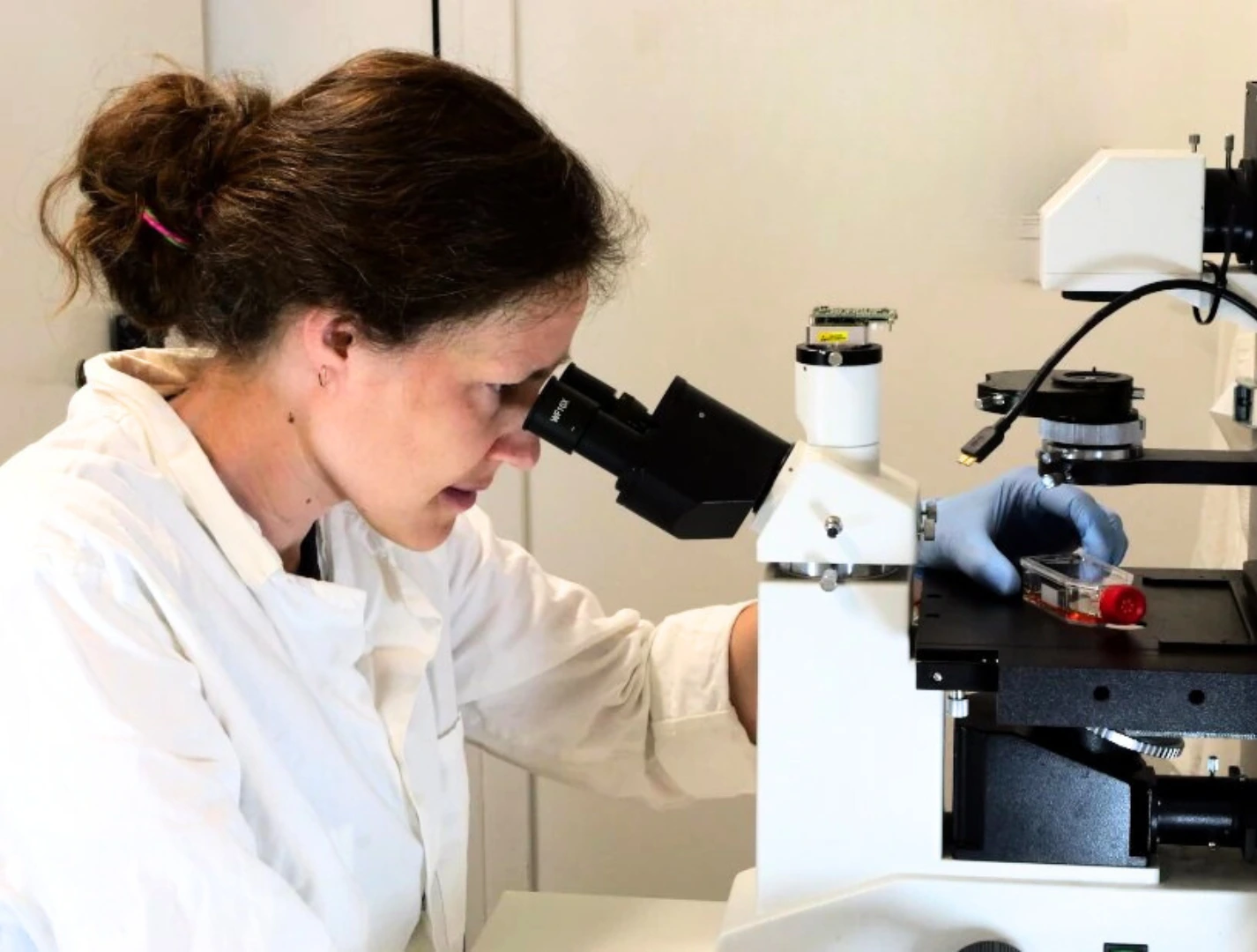
Need a microfluidic SME partner for your Horizon Europe project?
Image credit: Choroidal vessels in the human eye with red blood cells. Peter Maloca. Attribution 4.0 International (CC BY 4.0).
Blood-vessel-on-chip setup
Our blood-vessel-on-chip pack is designed to replicate the relevant flow rates found inside blood vessels with the flexibility of using the chip of your preference so you can better reproduce the tissue microenvironment of your interest. A pressure-driven flow controller, combined with a flow sensor, can provide a range of flow rates (from 0.5µl to 5ml/min) and flow profiles (linear, pulsatile, stepwise, etc.) to mimic the pathophysiological conditions found in the vasculature.
The recirculation bridge is a set of arranged valves that allows the recycling of the media, enabling its enrichment with metabolites, the preservation of conditioned media containing bioactive molecules, and the economy of large volumes of media in long-term experiments.
The level sensors, integrated into the smart culture tube rack, automate the experiment setup and changes between reservoirs. Also, in case of leakage, they stop the flow before the reservoirs become empty and air can reach the cells.
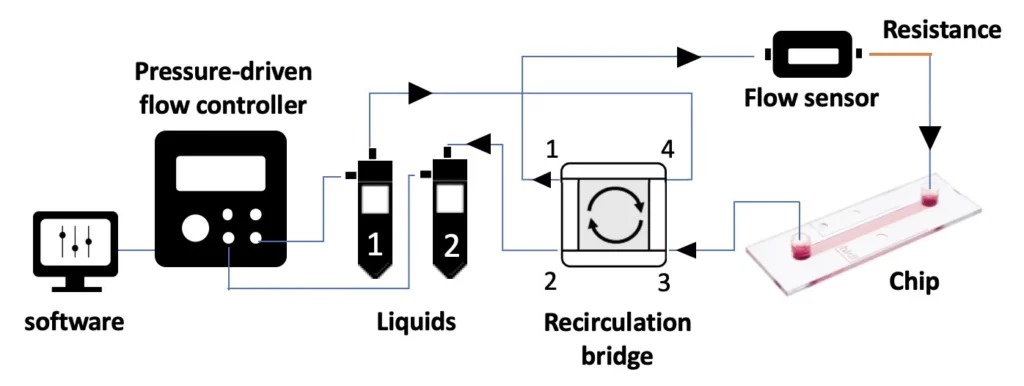
The blood-vessel-on-chip pack includes:
Flow sensor (Galileo, MIC)
Recirculation bridge
Smart culture tube rack
Software (Galileo user interface)
Flow controller
Reservoirs for precursor solutions
Several falcon reservoirs
Tubings and fittings
Microfluidic chip of your choice
User guide
Compatibility of blood-vessel-on-chip pack
Our blood-vessel-on-chip Pack was designed to be compatible with commercially available or homemade chips (specific adaptors might be required), the most common microscopy, and supernatant assays. If you work with a particular chip or assay not listed below, please get in touch with us!
Chips
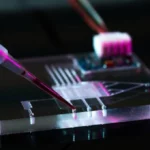
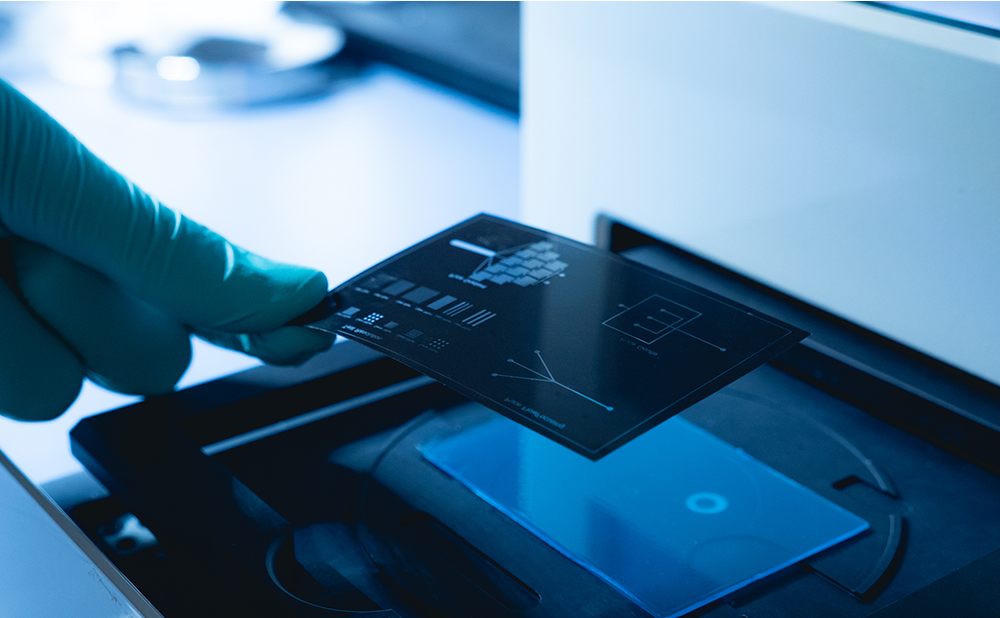
PMMA device station
From mold development to high-resolution PMMA chip fabrication
✓ Fast process
✓ Multiple applications
✓ Simple and innovative setup
PMMA
Synvivo
Ibidi
Microfluidic ChipShop
And many more!
Applications
Assays
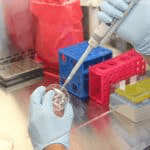
TEER
Immunostaining of endothelial cell markers
Albumin reabsorption
3D reconstructions
Perfusion assay, using fluorescent dyes
Pharmacokinetics assays
Immunohistochemical and histopathological characterization
Toxicity assays
And many more!
- Effects of shear stress and flow profile on endothelial cells
- Migration and evasion/invasion of circulating tumor cells
- Barrier structure and permeability
- Vascularisation
- Angiogenesis
If you want to know more about organ-on-a-chip technology, have a look at this review!
Customize your pack
We offer compatible instruments for standard commercialized chips from various brands. We can customize your pack to suit your specific needs with guidance from our specialists, who will suggest the best instruments and accessories. We’ll also help you set up the perfusion platform.
Frequently asked questions
Can I order a pack?
Since Packs are products that are still being developed, we have a few eligibility criteria to maximize their success rate. A discussion with our experts is needed to determine your specific needs to offer you a personalized response.
Can the modules be sterilized/autoclaved?
The components of the setup can be sterilized. Our user guide provides detailed information on how to do it.
Can a pack be customized based on my specific application?
Yes! Our experts will establish which instruments are best suited for your application, such as the type of flow sensor or the number of flow controller channels you need to perform your experiment. Contact us using the “talk to our experts” green button above.
Can I buy individual instruments?
Our instruments are in beta testing phase and can be tested as a pack or individually, so get in contact with our team to know how our beta testing program works.




